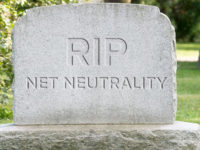The Bell playbook for its website blocking proposal has largely followed a familiar narrative. Much like the “Fair for Canada” campaign in 2013 that was designed to convince Canadians that keeping foreign competitors such as Verizon out of the country was in their best interest, the FairPlay Canada campaign similarly tries to make the case that a coalition of supporters want the CRTC to institute website blocking without court orders. The campaign clearly starts with Bell: they first raised the issue in September at a House of Commons committee hearing, obtained the legal opinion to support the application (it is addressed to Bell), and used a closely allied law firm to draft the application.
Post Tagged with: "website blocking"
The Case Against the Bell Coalition’s Website Blocking Plan, Part 11: Higher Internet Access Costs for All
The Bell website blocking coalition includes several Internet providers, but there are no smaller, independent ISPs. The absence of smaller ISPs that are essential to the government’s aspiration for greater Internet access competition is unsurprising given the costs associated with site blocking that can run into the millions of dollars with significant investments in blocking technologies and services, employee time to implement blocking mandates, and associated service issues. A mandated blocking system applied to all ISPs in Canada would have an uneven impact: larger ISPs will face new costs but may find it easier to integrate into existing systems (some already block child pornography images), whereas hundreds of smaller ISPs would face significant new costs that would affect their marketplace competitiveness. In fact, larger ISPs might ultimately benefit from higher fees passed along to subscribers and reduced competition.
The Case Against the Bell Coalition’s Website Blocking Plan, Part 10: Why It May Violate Human Rights Norms
The Bell coalition website blocking plan may violate more than just Canadian net neutrality rules. As currently framed, it may also violate human rights norms. Website blocking or other measures to limit access to the Internet raises obvious freedom of expression concerns that has sparked commentary from many international governmental organizations. Frank LaRue, the former U.N. Rapporteur on Freedom of Expression, was one of several experts on freedom of expression, including representatives from the Organization for Security and Co-operation in Europe, the Organization of American States, and the African Commission on Human and Peoples’ Rights, who issued a joint declaration in 2011 on freedom of expression and the Internet. It states the following on blocking:
The Case Against the Bell Coalition’s Website Blocking Plan, Part 9: Why it Violates Canadian Net Neutrality Rules
Of all the claims that accompanied the launch of the Bell coalition’s website blocking plan – piracy rates (weak evidence) and claims of harm (unsupported by the data), inferences that the absence of a court order is commonplace (it isn’t), that the blocking will be strictly limited (unlikely), and that site blocking is effective (considerable data says otherwise) – the most audacious is surely the repeated assurances that site blocking does not raise net neutrality issues. Given that the starting principle for net neutrality is the right for users to access content and applications of their choice, blocking content is prima facie a net neutrality violation.
The Case Against the Bell Coalition’s Website Blocking Plan, Part 8: The Ineffectiveness of Website Blocking
The Bell website blocking coalition unsurprisingly argues that blocking “regimes have been widely adopted internationally because they have been proven to work.” The submission cites data from several countries including the UK, Portugal, and South Korea. As demonstrated last week, the Bell coalition proposal has not been widely adopted internationally. In fact, the overwhelming majority of countries have rejected approaches that do not include court orders. Moreover, a closer look at the data reveals that website blocking is far less effective than its proponents claim.




![By Pratyeka (Own work) [Public domain], via Wikimedia Commons, https://commons.wikimedia.org/wiki/File%3AOptus_blocking_TPB.jpg](https://www.michaelgeist.ca/wp-content/uploads/2018/02/Optus_blocking_TPB-200x150.jpg)






